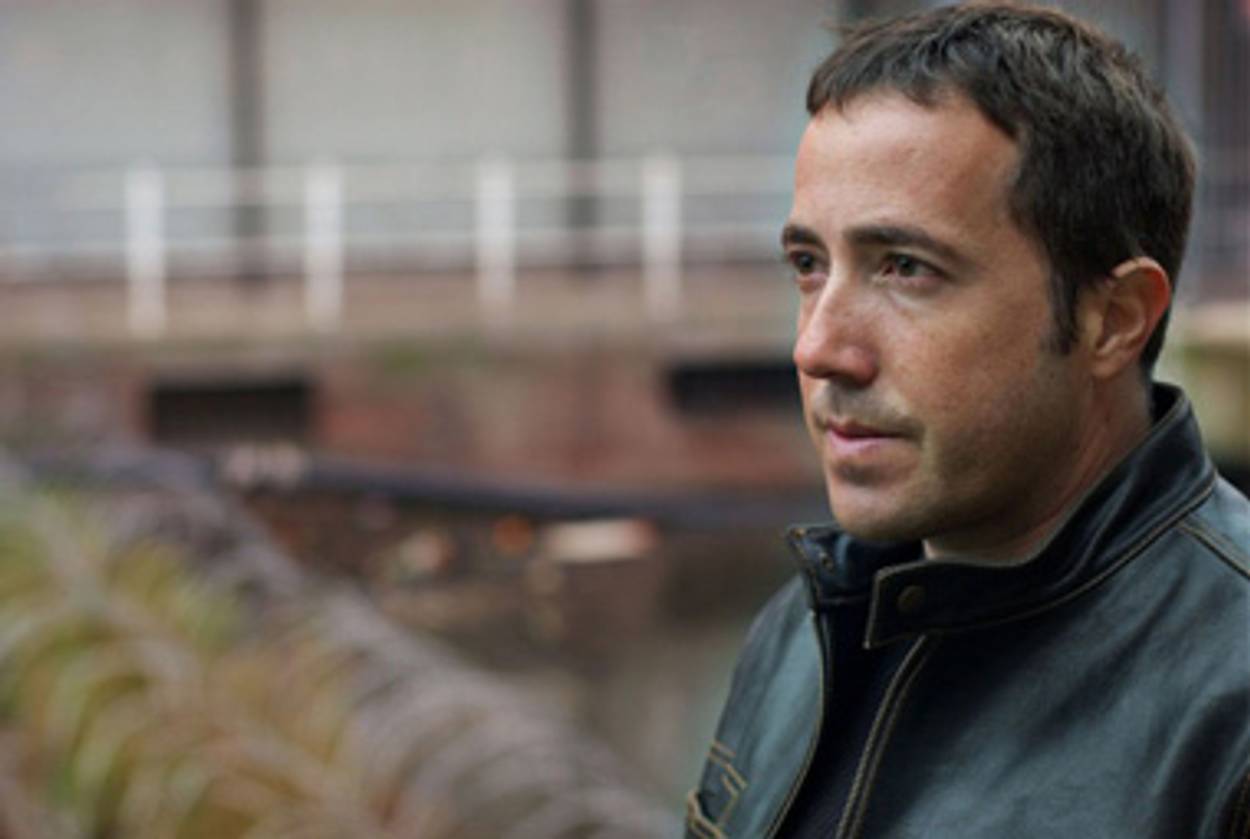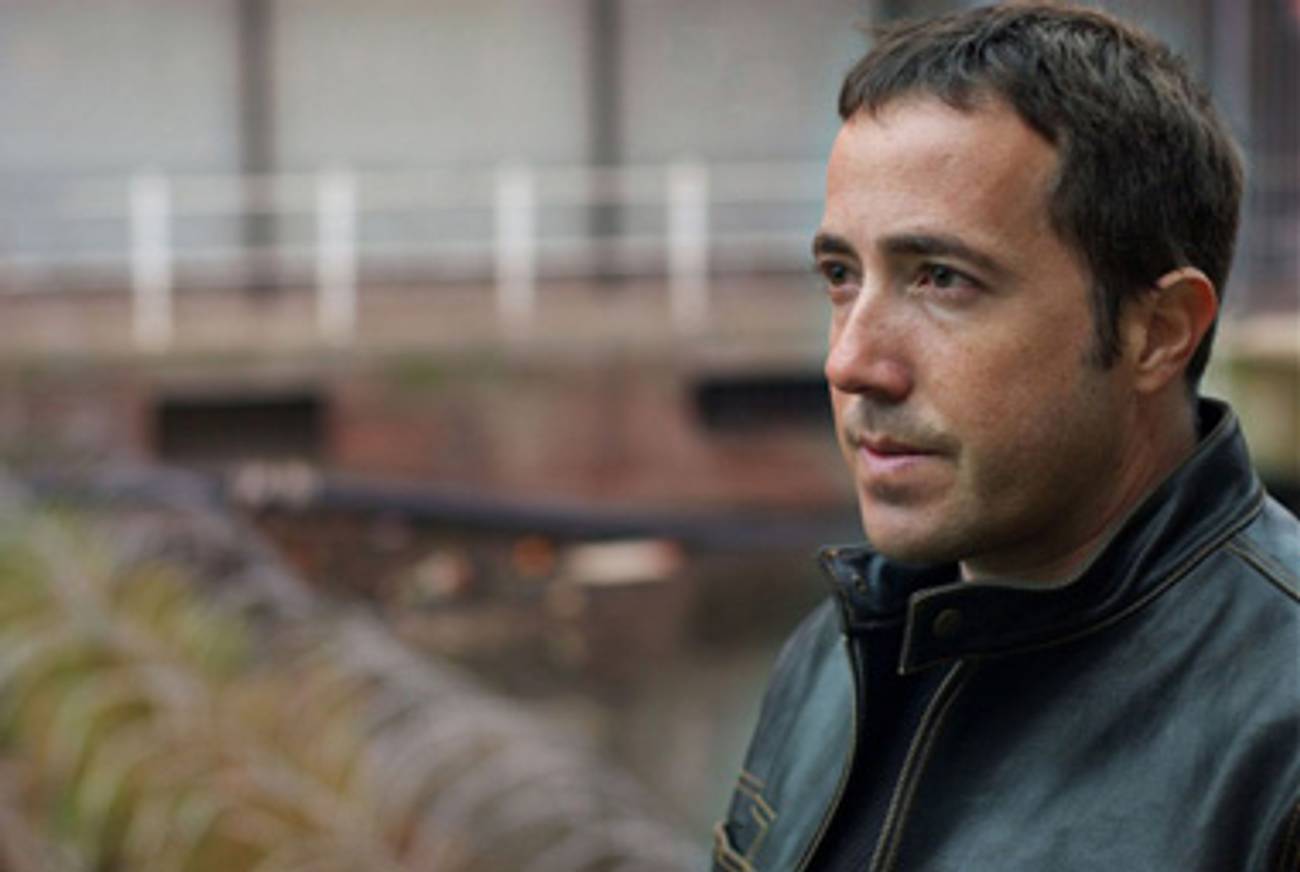Nothing to Fear
Filmmaker Yoav Shamir thinks anti-Semitism isn’t much of a problem. Is that a problem?




Trailing praise and controversy as it comes off the festival circuit onto neighborhood screens, Yoav Shamir’s documentary Defamation offers viewers a first-person excursion into the subject of anti-Semitism: a phenomenon that the filmmaker often hears about, he says, but doesn’t quite know why, since as an Israeli he’s never experienced it. From this teasing premise, Defamation goes on gleefully to propose that anti-Semitism matters less today than many Jews would like to believe. The glee part is a problem, I think, and I’ll get to that. But first, to avoid defaming Shamir, let me be precise about what he’s actually doing.
Fair-minded viewers will not accuse him of having denied that some people still spew horrendous stereotypes of yid and kike, given that he practically begins Defamation by interviewing one of the offenders: his grandmother in Jerusalem. Jews? They’re nothing but schemers and layabouts, she tells him, liquor-store owners and interest gougers, too lazy to do any real work but skilled in every sharp practice. (Her definition of “Jews,” I should note, is limited to those in the Diaspora.) Shamir also records, and argues with, some equally noxious slurs voiced by African-Americans on a streetcorner in Crown Heights, Brooklyn, where the Protocols of the Elders of Zion continues to win adherents because, look, you can see it checks out. Moving from word to deed, he visits a synagogue in Moscow, where an intruder had recently expressed his opinion of Jews by attacking some of them with a knife.
That said, Shamir is not bent on amassing evidence of widespread, virulent anti-Semitism (as Marc Levin tried to do in his 2005 documentary, Protocols of Zion). He is interested, rather, in a different project, and a legitimate one: examining the moral effect on Jews in general, and Israelis in particular, of their persistent fear of anti-Semites.
To explore this topic, Shamir proceeds in the most labor-intensive tradition of documentary filmmaking, carrying his camera through three continents, poking its lens into the ongoing lives of more than two dozen people and developing the material he gathers into three intertwined storylines.
In the first of these, he follows Abraham Foxman, national director of the Anti-Defamation League. Shamir visits with Foxman’s staff in New York; attempts (with often comic results) to find an appropriately blood-chilling case of anti-Semitism in the ADL’s register of reported insults and slights; and then accompanies Foxman and some ADL donors on a visit to Eastern Europe.
Rotund, bustling, and quick to smile, Foxman appears in these scenes as someone who is open enough to give Shamir the run of his office and thoughtful enough to discuss with him the contradictions of the anti-anti-Semitism trade. (Foxman explains that foreign political leaders receive him respectfully only because they believe he has the ear of the United States government—putting him in the position of subtly reinforcing the myth of Jewish power, even while he combats it.) Shamir confesses in voiceover that he admires the way the ADL director handled a high-level meeting—you get to see it and judge for yourself—and concludes that Foxman is so highly attuned to threats to the Jewish people that he might be thought of as an early-warning instrument. As much as Shamir may be at odds with Foxman as a political figure, he seems to like the man.
The reverse holds true in the second storyline. In this part of the film, Shamir interviews academics—including Norman G. Finkelstein, author of The Holocaust Industry—who argue that the Jewish community’s institutionalized preoccupation with anti-Semitism is exaggerated and that it serves the unwholesome function of forestalling criticism of Israeli policies toward the Palestinians. I think it’s fair to say that Shamir endorses this position—but, again, his presentation of it has surprising nuances.
The first time you see Finkelstein, something of his character comes through—enough to make him a gift to the filmmaker, as a painfully spare, frighteningly high-strung contrast to Foxman; but the unambiguous purpose of the interview is simply to draw out his views, and so to advance Shamir’s. The second interview, though, is all about character, and it’s a catastrophe. Raging, railing, unable to keep still, Finkelstein sarcastically tosses off a Nazi salute for the camera, after which the action really heads downhill. By the time it hits bottom, you feel that Shamir might assent to many of Finkelstein’s ideas, but he could never give this man his trust.
The characters who do claim Shamir’s heart, and the film’s, are the Israeli high-school students in the third storyline: unguarded, boisterous, impressionable kids from Haifa, who are being readied for their military service (including duty in the occupied territories) by being taken on a curriculum-approved trip to death-camp sites in Poland. As their tour proceeds, you see that no effort is spared to convince these young people that for Jews, the world will forever be an all-enveloping cloud of hostility, capable of shooting out bolts from any direction, at any time. You observe the change come over the kids as they incorporate this lesson; and if you’re like Shamir, you fear for them—and for the people who will soon be in their rifle sights.
Defamation does a remarkably good job of blending and pacing these complex, wide-ranging storylines. The film’s method of argument is honest—Shamir neither disguises his opinions nor conceals those of others—and the globe-trotting is justified by any number of discoveries made along the route. But the most appealing feature of Defamation, the one that really sells the film, is the jocular, somewhat faux-naif manner that Shamir adopts. He makes it fun to think about Jews overburdening themselves (and others) with their fears—and this, as I said, is a problem.
So long as Defamation plays to an audience of Jews—the film’s own subjects—Shamir’s light, satirical touch can only be welcome. But audiences of other backgrounds will also be drawn to the film—because it’s enjoyable, because it advances a political critique that many people want to hear, and also (let’s not forget those street corner anti-Semites) because its representative Jews sometimes come off as moneyed influence-peddlers. Let me be clear: on the whole I respect what Shamir has done in Defamation, and I think that Jews really ought to have the minimum of courage required to see his arguments aired. But having grown up as a Christ-killer, bloodied on the streets of South Chicago, I may perhaps be forgiven for lacking the full measure of mental freedom that Shamir would like me to have. When I consider how this film might play when we’re no longer talking just among ourselves, I start to think that it’s no laughing matter.
Stuart Klawans is the film critic of the Nation and author of the books Film Follies and Left in the Dark.
Stuart Klawans is the film critic of the Nation and author of the books Film Follies and Left in the Dark.